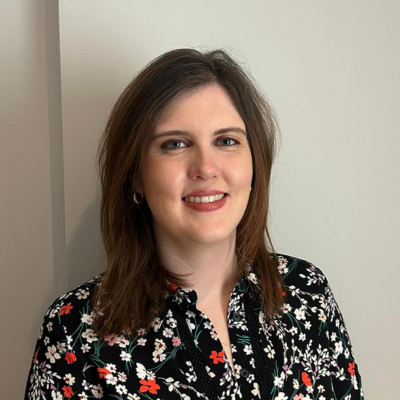
 July 2024
July 2024
What is your current role?
I am a clinical research fellow working in the paediatric genetics research team led by Dr Melita Irving, consultant clinical geneticist. Supported by specialist research nurses and a clinical research practitioner, we run clinical trials of innovative therapies for children with rare genetic diseases, particularly those affecting bones.
Tell us about a typical day
We support children to take part in studies in Wolf ward, a dedicated children's clinical facility in Evelina London Children's Hospital. The children we see are all living with genetic conditions, and they want to help us better understand their condition or test whether potential new treatments, or existing drug treatments already being used for other conditions, are safe and can benefit children with their condition.
Much of our work involves looking at how children with achondroplasia develop, so we can understand how they grow and in what ways their condition affects their everyday lives. This involves special training, so we can measure the children, including very young infants, as accurately as possible. Often after a child has been involved in a study looking at their development (known as a natural history study) they will get involved in a study where we give them a trial drug. It is particularly important that we have measured the children as accurately as possible during the natural history study so we can see how their bodies respond to the trial drug.
First and foremost, we need to make sure it is safe for children to take the drugs we're testing so every study has very clear criteria and is very carefully managed to make sure we precisely monitor a child's response to the drug. Children are with us for nearly a whole day each time they visit so we can collect all the information we need to show that the drug is safe and to monitor its effects. We rely heavily on support from teams in other departments to help us fulfil the requirements of each study visit, such as radiology, nuclear medicine, sleep and cardiology services. Without them, we would not be able to run our clinical trials.
We quite often have more than one family in with us at a time, so the children can spend time playing together when they are with us. Sometimes they bring their homework too, so they can keep up in spite of missing school to visit us.
What's the best thing about your job?
As the children who are on clinical trials need frequent reviews, we all really enjoy getting to know the families and building relationships with them. The visits can be really good fun too.
We're lucky we often get opportunities to attend national and international meetings and conferences to network with other research teams from across the world. We share experiences and present the information we have worked hard to generate.
What is your proudest moment?
As a team, we're all extremely proud that we’re able to deliver high-quality clinical research trials for patients with rare diseases. As an international top recruiting site, we have contributed important data that has subsequently led to the approval of drugs for clinical use. This means many more children around the world now have access to these life-changing medicines.
What are you working on at the moment?
We're currently delivering 9 clinical trials, focused on the rare bone disease achondroplasia. We have many others coming in the very near future and have also just concluded a drug-repurposing trial, using a medicine called carbamazepine to treat rare skeletal conditions.

Thank you to the children and young people who have so brilliantly illustrated our blog pages.